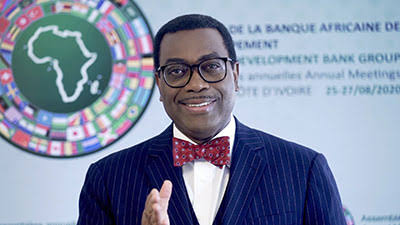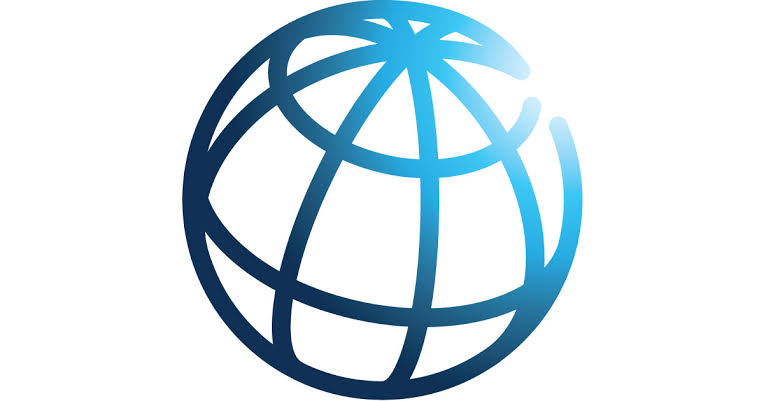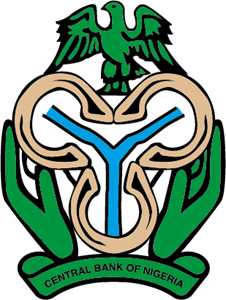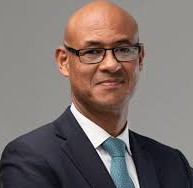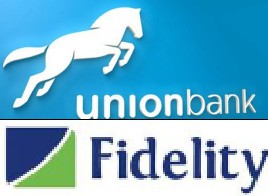All Posts in "Banking & Finance"
World Bank lowers Nigeria’s 2023 economic growth forecast to 3.2%
By Favour Nnabugwu
The World Bank has lowered its economic growth forecast for Nigeria in 2023 to 3.2 per cent from 3.3 per cent
The bank attributed the down grade to low global growth, the war in Ukraine and including declining demand from China for commodities produced in Africa.
Citing similar conditions, the World Bank also projected that the Sub Saharan African region will recorded a lower economic growth of to 3.3 per cent in 2022 from 4.1 per cent recorded in 2021.
Consequently, the World Bank called on the governments in the Sub Saharan African region to urgently implement measures to restore macro-economic stability and protect the poor in a context of slow growth, high inflation
The forecasts were contained in the October edition of the World Bank’s Africa’s Pulse, a biannual analysis of the near-term regional macroeconomic outlook, economic growth in Sub-Saharan Africa (SSA).
Highlighting the growth factors for Nigeria’s economy, the World Bank said: “The Nigerian economy is projected to slow in 2023, down to 3.2 percent (from 3.3 percent) and persist at this level the following year. Growth will be supported mainly by the rebound in private consumption prompted mostly by accommodative monetary policy as inflationary pressures subside.
“Private consumption expenditure is forecast to decrease this year and grow next year. This performance will likely continue in 2024. On the production side, growth in 2023 will be supported by industry (with growth of 5.1 percent) with the mega-refinery project.”
On its growth forecast for the Sub Saharan African region, the World Bank said: “Economic growth in Sub-Saharan Africa (SSA) is set to decelerate from 4.1% in 2021 to 3.3% in 2022, a downward revision of 0.3 percentage points since April’s Pulse forecast, mainly as a result of a slowdown in global growth, including flagging demand from China for commodities produced in Africa.
On the factors undermining economic growth in SSA, the World Bank said: “The war in Ukraine is exacerbating already high inflation and weighing on economic activity by depressing both business investments and household consumption. As of July 2022, 29 of 33 countries in SSA with available information had inflation rates over 5% while 17 countries had double-digit inflation.
“Elevated food prices are causing hardships with severe consequences in one of the world’s most food-insecure regions. Hunger has sharply increased in SSA in recent years driven by economic shocks, violence and conflict, and extreme weather. More than one in five people in Africa suffer from hunger and an estimated 140 million people faced acute food insecurity in 2022, up from 120 million people in 2021, according to the Global Report on Food Crises 2022 Mid-Year Update.
“The interconnected crises come at a time when the fiscal space required to mount effective government responses is all but gone. In many countries, public savings have been depleted by earlier programs to counter the economic fallout of the COVID-19 pandemic, though resource-rich countries in some cases have benefited from high commodity prices and managed to improve their balance sheet.”
“Debt is projected to stay elevated at 58.6% of GDP in 2022 in SSA. African governments spent 16.5% of their revenues servicing external debt in 2021, up from less than 5% in 2010. Eight out of 38 IDA-eligible countries in the region are in debt distress, and 14 are at high risk of joining them.
At the same time, high commercial borrowing costs make it difficult for countries to borrow on national and international markets, while tightening global financial conditions are weakening currencies and increasing African countries’ external borrowing costs.”
Stressing the need for governments to improve the efficiency of existing resources and to optimize taxes in response to the above challenges, the World Bank added that, “In the agriculture and food sector, for example, governments have the opportunity to protect human capital and climate-proof food production by re-orienting their public spending away from poorly targeted subsidies toward nutrition-sensitive social protection programs, irrigation works, and research and development known to have high returns.
“For example, one dollar invested in agricultural research yields, on average, benefits equivalent to $10, while gains from investments in irrigation are also potentially high in SSA. Such reprioritization maintains the level of spending in a critical sector, while raising productivity, building resilience to climate change, and achieving food security for all.
Creating a better environment for agribusiness and facilitating intra-regional food trade could also increase long-term food security in a region that is highly dependent on food imports.”
.
Beneficiaries of CBN intervention fund re-paid N3.7trn in four years
By Favour Nnabugwu
The Central Bank of Nigeria (CBN) said the beneficiaries of the intervention finds disbursed in the last four years, N3.7 trillion has been re-paid out of the total of N9. 3 trillion
The Director of Development Finance Department of the bank, Mr. Yusuf Yila, made this known in Abuja today
Of the total figure the apex bank said a total of N5. 3 trillion of the intervention funds was not yet due for repayment.
He said that the apex bank would slow down intervention schemes, with it’s new move to curtail the inflationary trends.
Mr..Yila insisted that all beneficiaries of CBN intervention schemes must pay back their loans, as according to him, they were not grants.
Giving details on why the CBN raised the Monetary Policy Rate (MPR) the Director of Monetary Policy, Dr. Hassan Mahmoud explained that in current economic situation in the country, with the rising inflation rate, hiking the interest rate was the best decision to curtail it.
“In the last 17 months or so, inflation has been going up but we didn’t jack up the rate until we felt that we had to act to tackle the trend.
“Note that Central Banks have been raising rates across the globe because of the global inflation trend. But we didn’t raise rate just because others are raising rates. We raised rate because of the wind gap before the inflation rate and the interest rate.
“How does the rising inflation affect the economy? The volume of money was too high for the economy to a sorb in terms of the flow of supply. Consequently, prices will go up because of the volume of money in the system.
“A lot of those funds standing idle. The banks are not lending the funds and as such impacting negatively on our Freign Exchange market.
“It will also impact on the Foreign Exchange market and when the Naira depreciates, so also will the it will increase the inflation rate. Besides, it will make our economy unattractive to foreign investors to bring in their money.”
Ecobank Group appoints CEO, Jeremy Awori as Ade Ayeyemi retires
By Favour Nnabugwu
Ecobank Transnational Incorporated (ETI), the parent company of the Ecobank Group has announced that the appointment of a new Group Chief Executive Officer, Jeremy Awori to succeed Ade Ayeyemi who will retire after he attains the age of 60, in accordance with ETI policy
The company, in a statement to the Nigerian Exchange Limited, NGX , stated that its Board of Directors selected Jeremy Awori to succeed Ade Ayeyemi as Group Chief Executive Officer, noting that the relevant effective dates will be communicated in due course.
The statement stated: “Alain Nkontchou, Ecobank Group Chairman, thanked Ade for his immense contribution during his seven years at the helm of the Ecobank Group as Group CEO.”
The Chairman added: “Ade can be rightly proud of his success in leading the implementation of the Roadmap to Leadership strategy, navigating Ecobank through challenges, seizing opportunities, and positioning Ecobank for sustainable long-term growth. Ade’s deep knowledge, unrivaled vision, commitment and infinite passion made all the difference.
It has been a real pleasure working with him. I count on his continuous support to ensure a smooth transition as we onboard Jeremy Awori as the new Group CEO.”
“Jeremy Awori is a highly respected leader in the banking industry with significant achievements in his previous capacities. The Board of Directors strongly believes that his drive and strong focus on results will be vital in steering the Group in its next phase” Alain Nkontchou stated.
CBN set out against defaulting Anchor Borrowers
By Favour Nnabugwu
The Central Bank of Nigeria (CBN) has set out against beneficiaries of its Anchor Borrowers Programme who have failed to pay back their loans.
Specifically, the NIRSAL Microfinance Bank Limited (NMFB), has published the names of some of the borrowers with the largest Non-Performing Loans (NPL) , insisting that they must pay back such loans.
NMFB in a demand notice issued in Abuja, yesterday, indicated that it had reached out to the beneficiaries who remained adamant.
It said, “Following the Central Bank of Nigeria’s (CBN) directive to NIRSAL Microfinance Bank Limited (NMFB), to recover all non-performing intervention loans granted by NMFB under the Anchor Borrowers’ Programme (an intervention Scheme of the CBN), NOTICE is hereby given to the under-listed Customers, to offset their indebtedness to NMFB under the said intervention scheme of the CBN.
“Earlier Demand Notices have been issued by NMFB to the last known addresses of the aforesaid Customers, hence, this Public Notice serves as the final demand notice.”
Defaulters named by the management included: SADOLEN Interworld Ltd promoted by Saidu Audu Adaji and Nura Musa Hassa with an unpaid loan figure of N 2. 050 billion.
Gum Arabic Farms and Commodities Ltd promoted by Yusuf Ibrahim Babangida which owed N1.220 billion.
Prime Synergy Global Solutions Ltd was also identified by NMFB as a larg loan defaulter.
The company promoted by Mercy Ikeji and Jennifer Nyesom-Effiong owed N1. 451 billion.
According to the bank, other defaulters were: ASUJ Food Production and Processing, promoted by Abubakar Umaru Jibrilla owed N581. 416 million.
While Souvenire Seeds Nigeria Ltd promoted by Roseline Omokora and Con Investment Ltd promoted by Lady Josephine Waze owed N158. 184 million and 211. 605 million, respectively.
SEC records N2.5bn H1 surplus
By Favour Nnabugwu
The Securities and Exchange Commission, SEC, has recorded a surplus of N2.5 billion in the first half of 2022.
Speaking at the 2023-2025 Medium Term Expenditure Framework/Fiscal Strategy Paper, MTEF/FSP interactive session with the House of Representatives Committee on Finance, Director General of SEC, Mr. Lamido Yuguda said the Commission has so far carried out its promise to reduce the top heavy structure in the Commission by offering some top personnel a voluntary exit package.
Yuguda, according to a statement by the Commission, stated that 2020 and 2021 were particularly difficult times for the SEC as it was running a deficit.
The Commission had projected an annual deficit of N1.6 billion for 2022 at the beginning of the year.
“When we came on board, it was very difficult but we assured the National Assembly that we were going to take certain actions to make this deficit a thing of the past and our story this year is that we have actually turned the corner.
“If you look at our 2021 and 2020, compare with the 2022 budget and the 6 months in 2022 you will see that there is an actual improvement in the way we manage the finances of the Commission. It shows our budget for 2022 and the actual out time for the first half of that year. You can see that we projected a deficit of N1.6 billion, but as at the end of the first half, we have a surplus of about N2.5 billion”.
He stated that the presentation is a summary of the kind of efforts the current management has made over the past few years to position the Commission on the path of fiscal sustainability.
“Mr. Chairman we were top heavy and we said before this committee that we had a plan to offer a voluntary early exit to some of our top personnel and I am happy to report that at the end of last year we offered this scheme and quite a number of our staff took the offer and we were able to substantially reduce our work force by almost 30 percent”, he added.
He disclosed that although the Commission makes more money when the economy is buoyant, he also stated that due to the current shape of the economy, there was the need to cut costs to ensure.
While admitting that the commission has been operating under very difficult circumstances since it is currently superintending over a market that was affected by the negative impact of the coronavirus pandemic, he assured that steps are being taken to ensure that the fortunes of the SEC continues to improve.
He said: “If we go through the Medium-Term Expenditure Framework which we started last year, if we look at 2022 and 2023, you will see that we have worked on our expenditure and the deficit is now turning into a surplus. surplus. We therefore need the support of all to engineer the kind of transition we are thinking of at the SEC.
Lagos, FCT, 2 others receive $2.01 bn capital investment in Q2 2022
Fidelity Bank plans to acquire 100% of Union Bank UK
By Favour Nnabugwu
Fidelity Bank Plc has announced its plan to acquire a 100 per cent equity stake in Union Bank Plc in the United Kingdom.
In a corporate filing on the Nigerian Exchange Limited on Tuesday, Fidelity Bank said the Central Bank of Nigeria had issued ‘No Objection’ to its proposed acquisition of the bank which commenced London operations in 1983.
The notice signed by Fidelity Bank’s Company Secretary, Ezinwa Unuigboje, said the transaction is still subject to the approval of the Prudential Regulatory Authority of the United Kingdom.
Fidelity Bank’s Managing Director. Nneka Onyeali-Ikpe, said, “This transaction aligns with our strategic plan of expanding our service touch points beyond the Nigerian market and providing straight-through services that meet and exceed the needs of our growing clients.”
“The diverse service bouquet and business model of Union Bank UK offered a compelling synergy, and we hope to build on the existing capacity to create a scalable and more sustaining service franchise that will support the wider ecosystem of our trade businesses and diaspora banking services.”
In June, Titan Trust Bank Limited completed the takeover of Union Bank of Nigeria Plc which was one of Nigeria’s oldest banks.
First Guarantee Pension to be acquired by Access Holdings, approval received
By Favour Nnabugwu
First Guarantee Pension Limited is in the process of being acquired by Access Holdings for which regulatory approval for a majority equity stake ihas be received.
This is contained in a disclosure signed by Sunday Ekwochi, Company Secretary, titled, “Access Corporation announces receipt of full regulatory approval in respect of its acquisition of majority equity stake in First Guarantee Pension Limited.”
The Group believes the transaction is pivotal in its plan to evolve into to a financial service holding company positioned to gain relevant scale across Africa, global monetary centres and beyond-banking verticals.
Speaking on this development, Dr Herbert Wigwe, Group Chief Executive Officer, Access Corporation said, “this transaction is in line with our vision to create a globally connected community and ecosystem; inspired by Africa for the world. We will deploy our renowned culture of strong risk management, innovative technology and the best practice corporate governance to deliver high standards of management and returns on pension assets to the benefit of our stakeholders.”
This transaction is in line with our vision to create a globally connected community and ecosystem; inspired by Africa for the world,” he said.
“We will deploy our renowned culture of strong risk management, innovative technology and best practice corporate governance to deliver high standards of management and returns on pension assets to the benefit of our stakeholders.”
Nigeria, three others accounted majority of $19bn private sector investment in Africa
Nigeria, South Africa, Kenya Ghana accounted majority of $19bn private sector invedtment in Africa
By Favour Nnabugwu

